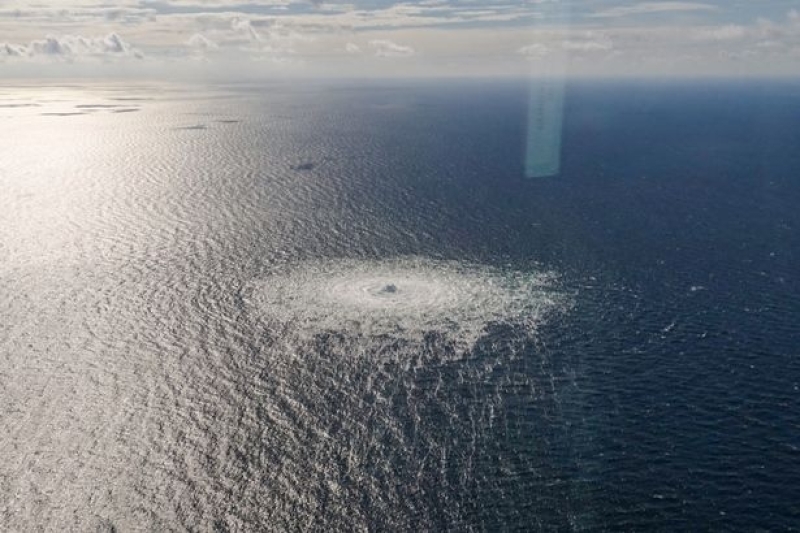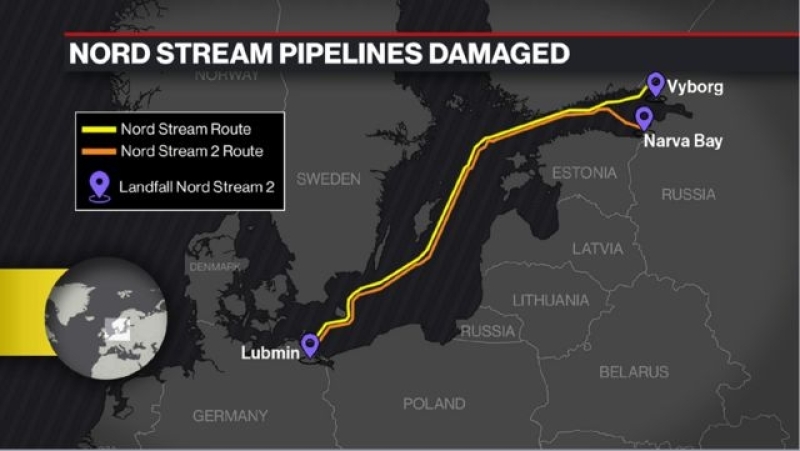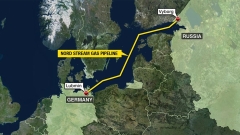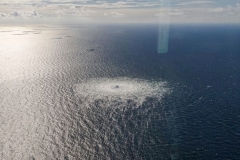
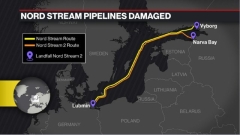
Underwater explosions were detected near Nord Stream leaks
Gas leaks in the Nord Stream 1 and 2 pipelines connecting Russia to Germany are being investigated by a crisis team set up by Sweden and Denmark.
Although the cause of the leaks has not been officially confirmed, measuring stations connected to the Swedish National Seismic Network (SNSN) detected powerful underwater explosions.
"We do not know what the cause of the explosions is," Michael Roth, a seismologist at SNSN, told EUobserver on Tuesday (27 September). "But we think the events are explosions and not just a burst [pipe] or leak because of the high-frequency signals."
The first explosion was recorded at 02:03 on the night of Monday, and the second at 7:04 p.m. on Monday.
One of the explosions had a magnitude of 2.2 on the Richter scale and was registered at as many as 30 measuring stations in Sweden.
"Blasts and earthquakes can be distinguished by the type of seismic waves they emit. An earthquake of that magnitude would have lower frequencies than a blast," Roth said. "The signals related to the two events are clearly explosions."
"However, we can not deduce which source was used," he said.
The Danish Royal Navy announced on Tuesday it had sent the frigate Absalon and the environmental ship Gunnar Thorson to patrol the waters and prevent vessels from entering the exclusion zones near the leak.
In an aerial picture posted by the Danish air force taken from an F-16 fighter jet, gas could be seen swirling to the surface in an area measuring about 1km in diameter. The smaller circle where the other blast took place is approximately 200 metres wide.
"We can see that a lot of gas is being released. So it is not a small crack. It's a really big hole," director of the Danish Energy Agency Kristoffer Böttzauw told Danish daily Berlingske.
Danish authorities on Tuesday raised the level of preparedness for energy companies. This requires them to do physical safety checks of the generator grounds several times a day.
"A leak is extremely rare, and it naturally causes strong concern. That is why we have raised the level of preparedness in Denmark," Böttzauw said.
"It is hard to imagine that it is accidental. We cannot rule out sabotage, but it is too early to conclude," Danish prime minister Mette Frederiksen said while in Poland, where she attended the inauguration of the Baltic pipeline which will connect the Norwegian gas grid to Poland.
'Sabotage'
Her Polish counterpart Mateusz Morawieckiwas was less cautious. "Today we faced an act of sabotage, we don't know all the details of what happened, but we see clearly that it's an act of sabotage related to the next step of escalation of the situation in Ukraine," he said.
When asked when divers would be able to investigate the leaks up close, the Danish Energy Agency could not immediately respond.
with information from: https://euobserver.com/ukraine/156162

Comments to this:


